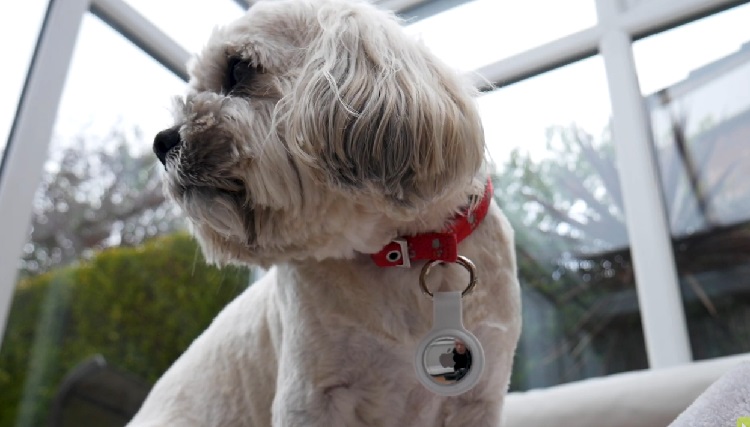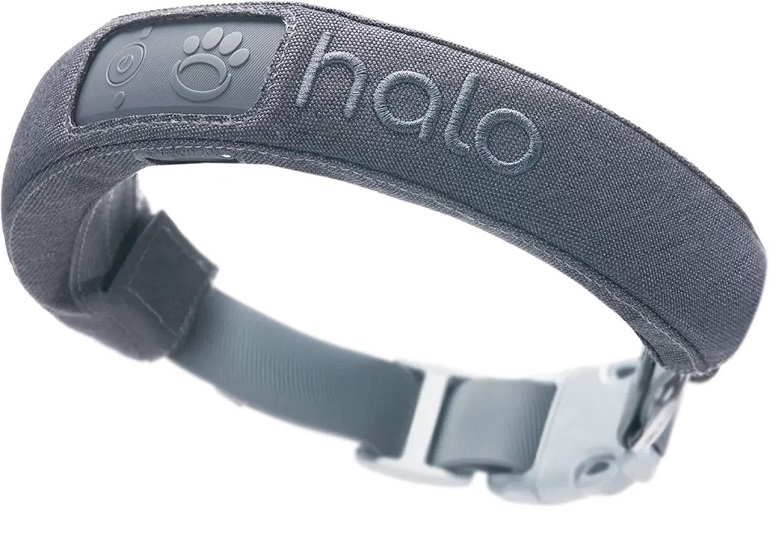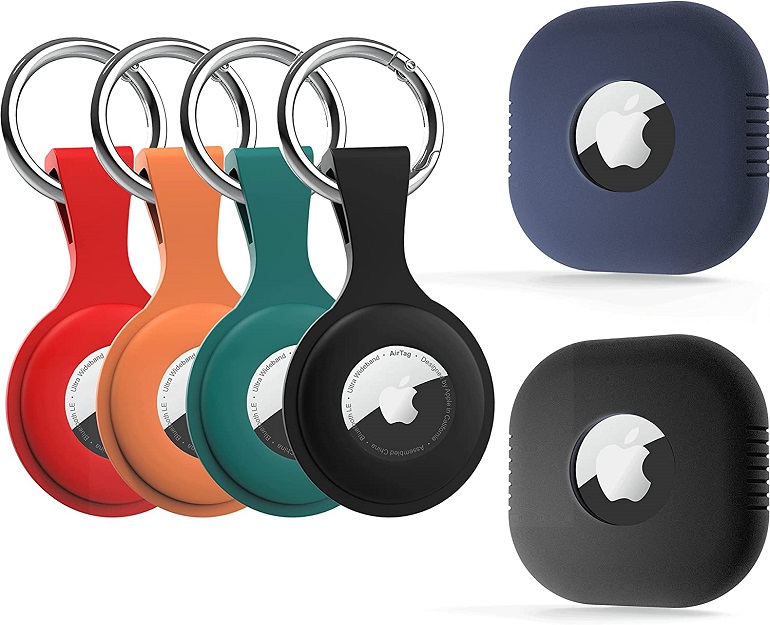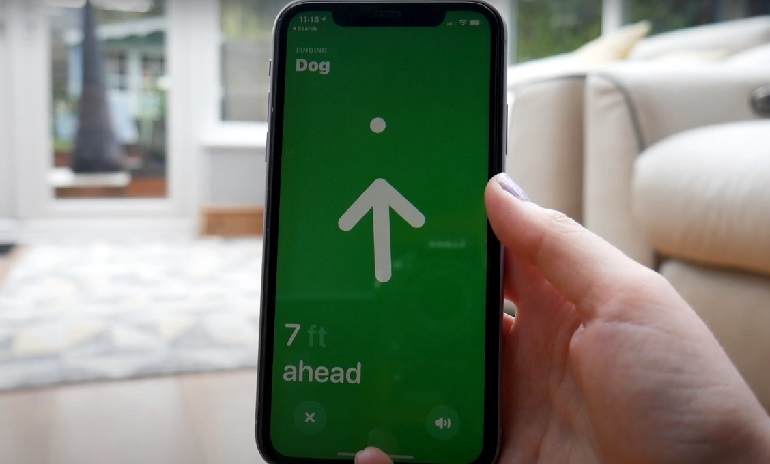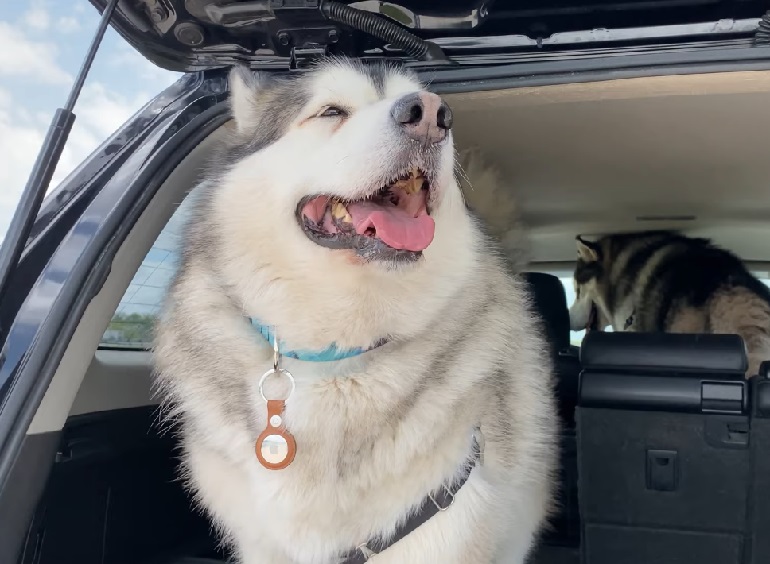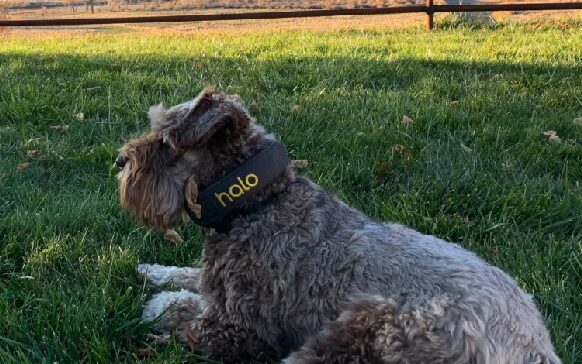Losing a pet is a heart-wrenching experience. AirTags, Apple’s tiny tracking devices, offer a glimmer of hope for pet owners. But are they suitable for your furry friend? While not specifically designed for pets, AirTags can be a helpful tool in locating a lost dog, with some important caveats. This article explores the potential benefits and drawbacks of using AirTags for dogs, offering practical advice to help you decide if this technology is right for keeping your beloved companion safe.
All pet owners worry about their furry friend escaping or running off somewhere when they’re off-leash. Microchips help pet parents reunite with them if they’re found, but these won’t track your lost pets.
Fortunately, there are trackers out there to monitor your dog’s location and even stop them from running off in the first place. Most are costly, but they’re one of the most affordable options is an Apple AirTag.
AirTags are a godsend for pet parents; they’re affordable, effective, and convenient, with a long-lasting battery. You can even use Apple’s AirTags for cats too!
Still, if you want the best tracker, check out GPS trackers like Halo. This has no tracking limitations, lets you set up geofences for added security, and even track their health status. However, Halo comes at a higher price than Apple’s AirTags.
Halo Collar
The price of “Halo Collar” varies, so check the latest price at
Check Price at Halo
What Is an Apple Air Tag for Dog?
An AirTag is a tracking device originally designed for you to help you find items you might lose, from keys and wallets to phones and laptops. If you lose any of these, you can use the attached Apple AirTag for tracking them down quickly and efficiently. You can use them to track down pets too – even if Apple doesn’t recommend it!
How Does the AirTag Work?
Since they’re designed for use with a range of objects, Apple’s AirTags are very small and designed to pop in your bag or on a keychain. It connects to the Find My network made up of millions of iPhones and other Apple devices throughout the world.
Apple Maps can show you its exact location when close enough to connect automatically to an Apple device.
You don’t have to rely on someone finding your pet though – even if your moving pet keeps running away from people, if they’re close enough to an iPhone, the Find My network can connect so you can track the location of your lost pets.
There’s an option for you to activate a sound from the AirTag’s built-in speakers to help you find them if they’re hiding in a bush.
But the best part is how Lost Mode sends you notifications whenever the Apple AirTag enters the Bluetooth range of an iPhone so you can see their location. You can even set it up so that any other phones within range will get a message from you so they can join in with the search.
And if someone else does find your pet, they can use an NFC-capable smartphone with the AirTag to find your contact info.
How Is the AirTag Different From a GPS Tracker?
AirTags rely entirely on people with Apple gadgets to be near enough to connect to the Find My network. In populated areas, this works well. However, this is much less effective in more remote areas.
However, GPS trackers work everywhere. They make use of cell service that can be accessed nearly everywhere in the world. But since it uses cell service, you need to pay for a monthly subscription on top of the higher cost of the tracking device.
Are You Using the AirTag To Track Your Dog?
Apple will never approve of you using AirTags for your pet, but plenty of people out there are doing it.
And that’s simply because it’s effective. There’s nothing wrong with doing it, especially since many other dog trackers work very similarly to AirTags. Besides, at around $30, it’s much cheaper than GPS trackers!
Why Doesn’t Apple Want You To Use AirTag for Tracking Your Dog?
AirTags are useful to track down objects, but Apple has been clear that they don’t want them used to track people or lost pets. But why not?
For people, Apple recommends using the Family Setup feature on Apple Watches. Not that it’s surprising that Apple would prefer for you to buy a more expensive product. Still, it’s also more reliable since it doesn’t rely solely on the Find My network.
Obviously, pets can’t use an Apple Watch and instead have to rely entirely on the Find My network. Since this network isn’t perfect, Apple doesn’t want to be liable for you using your pet and being unable to find them using an AirTag.
On top of that, AirTags aren’t designed for dog collars. There’s always the danger that they might fall off or get torn from your dog’s collar.
Imagine if someone used an AirTag for tracking lost pets after Apple said it was okay and could never find them again – Apple would face heaps of criticism! Naturally, they prefer to avoid that, so instead recommend against using them for pets.
Although you can’t blame Apple if anything goes wrong, that doesn’t mean you’re not allowed to use these convenient devices to track your pup.
Halo: The Best Alternative to an AirTag for Dogs
If the limitation of the Find My network worries you at all, it might be worth paying extra for a GPS tracker. These use satellites and cell service to track your pup’s location and give a more precise location. There are lots of these trackers out there, but the best of the bunch is Halo.
Halo’s location tracking is live and not limited like the AirTag’s reliance on the Find My network. But even better, it allows you to set up geofences, teach them to stay in specific areas, and even send an alert on your phone if they leave these boundaries.
Additionally, Halo tracks various behaviors to help you monitor their health more effectively.
If you’re interested in a GPS tracker, Halo is absolutely one of the best options. However, this tracking device is considerably more expensive and requires a subscription. It also might be too heavy for the smallest dogs.
Nevertheless, if you have the budget for it, it’s worth considering Halo.
Halo Collar
The price of “Halo Collar” varies, so check the latest price at
Check Price at Halo
Is an AirTag Worth Buying for Dogs?
Apple’s AirTags are effective alternatives to GPS collars. At a fraction of the price, they still work very well, depending on where you live.
Since they’re so affordable, you might as well grab an AirTag for your pet. However, just keep in mind its limitations – it requires nearby iPhones to connect to for tracking, can’t set up virtual fences, and can’t monitor any health-related behaviors.
Pros and Cons of Using an AirTag
Pros
- Affordable
- No subscription necessary
- Battery life lasts about a year
- Small and lightweight
- Built-in speaker emits sound for easy finding
- Can store contact information on it
- Can send messages to someone who finds your dog
- Sends notifications whenever AirTag comes in a range of an iPhone
- Can track dogs using Bluetooth
Cons
- Relies entirely on Apple users nearby
- Ineffective in remote areas
- Attachments not designed for secure fixing on collars
- Doesn’t alert you when dog leaves specific areas
- Don’t track the dog’s health
FAQ’s
Can I Use an AirTag to Track My Dog?
Yes. Although Apple doesn’t recommend it, if you can track items with an AirTag, there’s no reason you can’t track a dog too!
Apple AirTags aren’t perfect and have their limitations. However, with an in-built speaker, the ability to store contact information, and since you can access location tracking, they’re absolutely devices worth considering to track your dog.
Does Apple Approve of Using AirTags for Pets?
No. Although AirTags work well in densely populated areas, they’re still not specifically designed to track dogs.
They don’t approve of using AirTags for this purpose primarily because they don’t want to be held responsible if anything goes wrong.
You can still use AirTags to track pets regardless, but at your own risk. So, don’t blame Apple if it doesn’t work perfectly!
Are AirTags Good for Dogs?
Anything that can add security and track your dog down is a good thing. And since AirTags are so lightweight and improve their security, allowing pet parents to reunite with them if they get lost, they’re excellent for dogs… even if Apple doesn’t approve of them for this use!
Final Thoughts
Whether AirTags are right for you depends entirely on where you live. If you live in a populated area where there will often be an Apple device within a 100-foot range, it will work well. But if you live in a remote area, you might want to rethink.
AirTags have limitations. Even in ‘Lost Mode,’ they rely on Apple’s Find My network and aren’t necessarily able to track a pet anywhere in the world. They’re also unable to set up virtual fences or track your dog’s health status.
GPS trackers like Halo are excellent alternatives. Halo tracks your pup’s location all over the world, sets up virtual fences that alert you when they leave the boundaries, and even tracks behaviors to monitor health.
However, Halo’s considerably more expensive than an AirTag, requires a subscription and might be too heavy for smaller pups.
You should consider a tracker of some sort to give added security to your dog. But whichever tracker you pick depends on your dog, your budget, and where you live. But as an affordable but effective option, it’s hard to beat an AirTag!
AirTags can be a helpful tool in locating lost dogs, but they shouldn’t be your sole reliance. While their Bluetooth tracking through the Find My network can be effective in populated areas, limitations exist. AirTags lack GPS, meaning they rely on other Apple devices to relay location information. In remote areas with fewer iPhones, tracking becomes unreliable. Consider AirTags as a supplementary measure alongside traditional methods like microchipping and ID tags, especially for dogs who frequently roam beyond densely populated areas.

